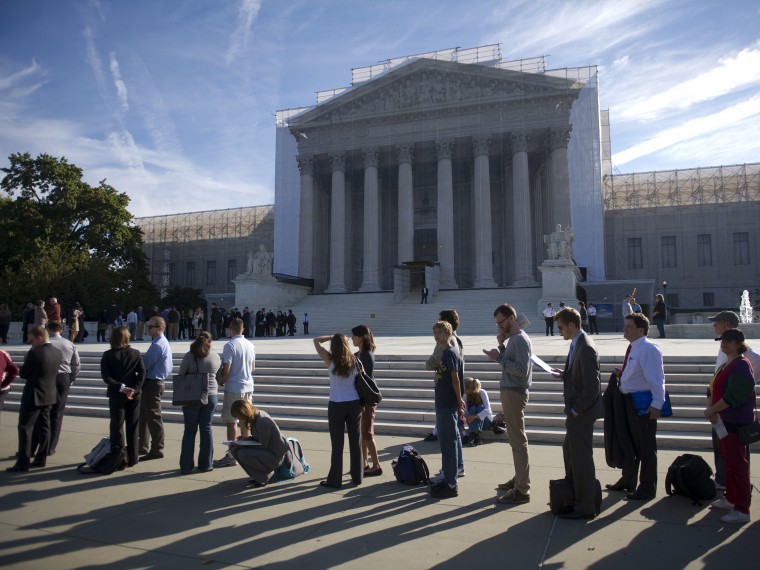The Republican National Committee will join Alabama resident Shaun McCutcheon in a challenge to campaign finance laws that limit the amount of money individuals can contribute within an election cycle that will be heard by the Supreme Court in the next term, starting in October.
The plaintiffs aregue in favor of removing caps on contributions to federal candidates, political parties, and political action committees.
While the $2,600 cap on donations to an individual candidate is not being challenged, opponents worry that removing the federal limits on individuals donating $46,200 to political candidates and $70,800 to political committees per election cycle could allow a donor to have overwhelming influence on the outcome of an election.
"The practical effect of a decision striking down the aggregate limits would be to render those individual contribution limits effectively meaningless because office holders could solicit upwards of one million dollar contributions," Adam Skaggs, senior counsel at the Brennan Center for Justice at the New York University School of Law told msnbc.com. "Technically those contributions would be divided, but the practical effect is that party committees would easily be able to transfer funds back and support the candidate doing the soliciting."
Of course, big-money donors are no stranger to political campaigns: Casino magnate Sheldon Adelson vowed to spend $100 million to defeat President Obama in the 2012 election and, according to the independent investigative journalism outlet ProPublica, he did. ProPublica's look into FEC and IRS records revealed that Adelson and his wife funded at least 34 different candidates and groups. While current aggregated limits put a cap on total donations to candidates, and, for example, state parties, no such caps exist on donations to super PACs— this enabled Adelson to spend a reported $30 million on the pro-Romney super PAC, Restore Our Future.
Super PACs are required by law to be wholly independent of the candidates they support, but close ties are often evident. For example, several former Romney aides, including the general counsel in Romey's 2008 presidential bid, Charles Spies, spearheaded Restore Our Future and served in top positions.
"While there are restrictions on how much super PACs can communicate with a candidate, there are no such restrictions with the party committees, which can work directly with these candidates and their campaigns," Skaggs told msnbc.com. "So when these aggregated contribution limits are struck down, we can expect massive funds flowing directly to groups working directly with the candidates."
